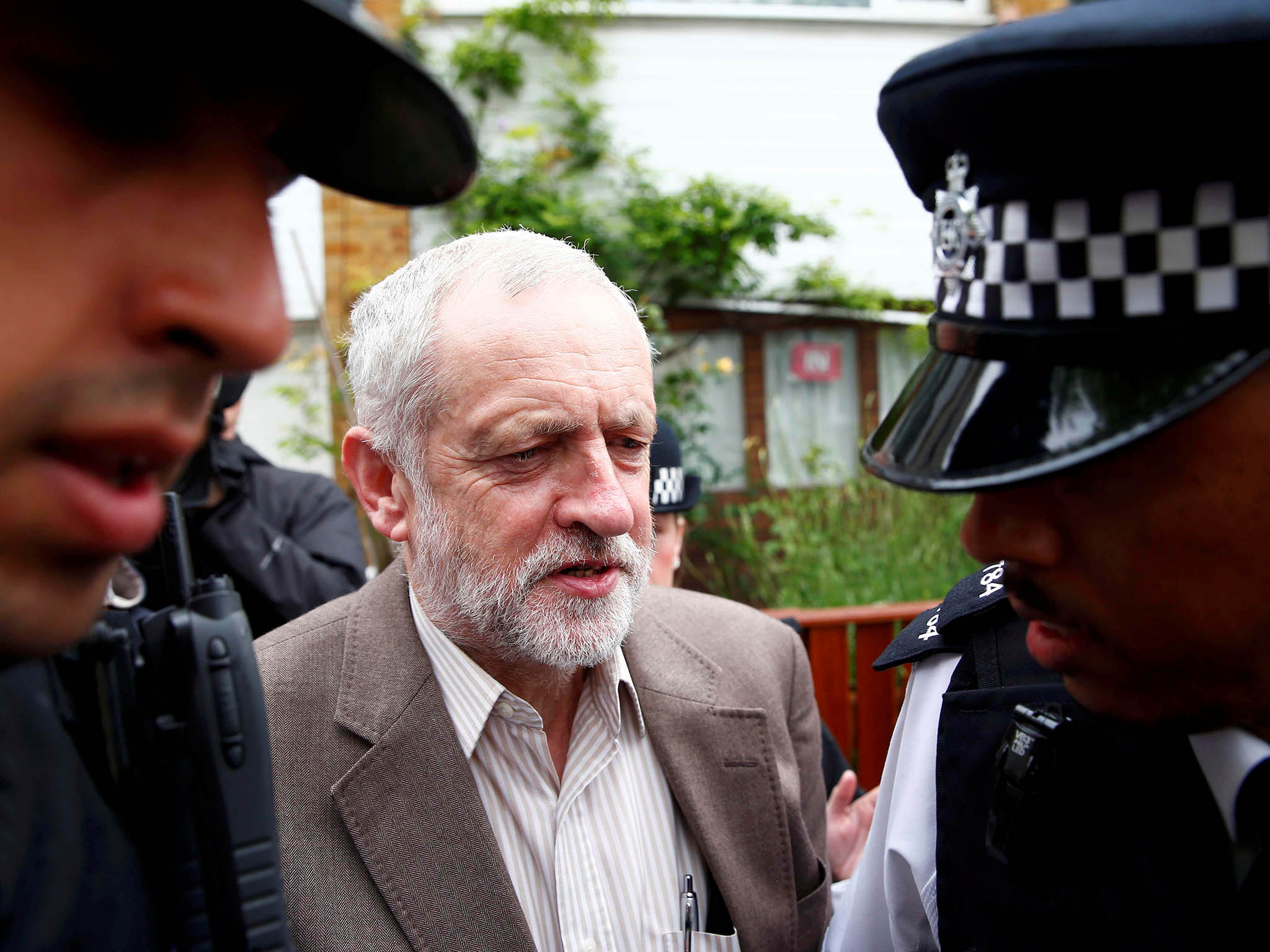Your support helps us to tell the story
From reproductive rights to climate change to Big Tech, The Independent is on the ground when the story is developing. Whether it's investigating the financials of Elon Musk's pro-Trump PAC or producing our latest documentary, 'The A Word', which shines a light on the American women fighting for reproductive rights, we know how important it is to parse out the facts from the messaging.
At such a critical moment in US history, we need reporters on the ground. Your donation allows us to keep sending journalists to speak to both sides of the story.
The Independent is trusted by Americans across the entire political spectrum. And unlike many other quality news outlets, we choose not to lock Americans out of our reporting and analysis with paywalls. We believe quality journalism should be available to everyone, paid for by those who can afford it.
Your support makes all the difference.Three-quarters of newspaper stories about Jeremy Corbyn in the first months of his leadership either distorted or failed to represent his actual views on subjects, a study has found.
Academics at the London School of Economics analysed the content of eight national newspapers between 1 September and 1 November 2015, when Mr Corbyn was first elected.
The media researchers found that in 52 per cent of articles about the Labour leader, his own views were not included – while in a further 22 per cent they were “present but taken out of context” or otherwise distorted.
In just 15 per cent of 812 articles analysed, Mr Corbyn’s views were present but challenged, and in only 11 per cent were they present without alteration.
“Our analysis shows that Corbyn was thoroughly delegitimised as a political actor from the moment he became a prominent candidate and even more so after he was elected as party leader,” Dr Bart Cammaerts, the project director concluded.
“These results relating to sources and ‘voice’ are evidently troublesome from a democratic perspective.
“Allowing an important and legitimate political actor, ie the leader of the main opposition party, to develop their own narrative and have a voice in the public space is paramount in a democracy.
“Denying such an important political actor a voice or distorting his views and ideas through the exercise of mediated power is highly problematic.”
Examples given by the researchers of distortions include one incident in which Mr Corbyn was presented as having criticised commemorations of the First World War in a 2013 speech.
The newspaper included in the study were The Sun, The Daily Express, The Daily Telegraph, The Daily Mail, the Evening Standard, the Independent, the Daily Mirror and the Guardian.
In terms of tone, fewer than 10 per cent of articles were judged by the researchers to be positive, while more than half were antagonistic or critical. Around a third had a neutral tone.
28 per cent of articles analysed were based on anti-Corbyn Labour party sources, while 23 per cent were based on pro-Corbyn sources.
Mr Corbyn’s supporters have been highly critical of media coverage around the Labour leader, judging it to be overwhelmingly hostile.
The Labour leader has himself also hit out at the media, banning journalists from asking him questions at the front door of his home.
“We have a party under attack from much of the media in this country like it has never been under attack before,” he said in May

Join our commenting forum
Join thought-provoking conversations, follow other Independent readers and see their replies
Comments